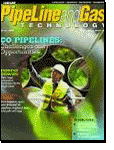Display problem ? Click HERE
A vessel with liquid at it boiling point exposing to external heat input from Fire would lead to liquid vaporization. Vaporization would subsequently leads internal pressure increases upto Pressure Relieve Valve (PRV) set pressure. The PRV will starts to open to relieve part of the vapor in order to maintain the vessel internal pressure within maximum allowable accumulated pressure (121% of PRV set pressure if the Vessel is designed to ASME Section VIII).


Determination of Relieve load for boiling liquid would required latent heat of the boiling liquid in the vessel. Dealing with single component, the latent heat can be easily obtained from literature or HYSYS simulator. However, in real world system, the fluid could be a multi-component fluid which the latent heat will change from initial boiling point (IBP) for final boiling point (FBP). In addition, light component with lower latent heat and lower molecular weight will release first as compare to heavy component with higher latent heat and higher molecular weight. Latent heat change lead to different relieve load and different properties would result different relieving area. Those a rigorous method may required to determine maximum relieving area. Following are the steps can be used to determine the latent heat and maximum relieving area.
HYSYS snapshot below may be referred when running through the steps.
STEP 1 : Define fluid in the vessel is at maximum Operating pressure (P0) & operating temperature (T0) prior to fire start.
HYSYS : Stream 1 is at P0 & T0. Flash stream 1 in VESSEL V-100 and associate vapor and liquid outlet are stream 2 & 3.
STEP 2a : Determine liquid volume (Vl0) and vapor volume (Vv0) which will be defined by the physical vessel dimension and piping volume. Calculate liquid volume (Vl0) and vapor volume (Vv0) consider liquid level in the vessel is at maximum liquid level (L0) and piping vapor & liquid volume.
STEP 2b : Adjust the inventory (vapor mass and liquid mass) in the vessel until you achieve the vapor
volume (Vv0) and liquid volume (Vl0).
HYSYS : Copy stream 2 to stream 4. Copy stream 3 to stream 5. Mix stream 4 & 5 into stream 6. ADJUST stream 4 Mass Flow to obtain Stream 6 Vapor Actual Volumetric Flow to Vv0. ADJUST stream 5 Mass Flow to obtain Stream 6 Liquid Actual Volumetric Flow to Vl0.
STEP 3 : Bring the the system to Relieving pressure (Pr0=121% of Pset). By maintaining system volume at V0 (=Vv0+Vl0). The system is at relieving condition. The temperature at this point is Tr0.
HYSYS : Define a new stream 7 with a BALANCE unit (mole balance only). Set Stream 7 pressure at Pr0. ADJUST stream 7 temperature until Overall Actual Volumetric Flow to V0 (=Vv0+Vl0).
STEP 4 : Next step is further input heat (Q1) to achieve 1-2 deg C above Tr0 but maintain pressure at Pr0. Normally the total volume (V1) at this point potentially higher than V0.
HYSYS : Flash stream 7 in VESSEL V-101 into Vapor outlet, stream 6 and Liquid Outlet stream 11. Attach a heat stream (Q-100) into V-101. SET stream 8 temperature 1-2 degC above stream 7.
STEP 5 : Part of the vapor (m1) from the system shall be removed in order to bring the system volume (V1) back to V0 as the physical volume maintain.
HYSYS : SPLIT stream 8 into stream 9 and 10. Mix stream 9 & stream 11 form stream 12. ADJUST stream 9 Mass Flow (m1) to obtain Stream 12 Overall Actual Volumetric Flow to V0.
STEP 6 : Above has shown that m1 (stream 9) will be removed with the heat input of Q1 (Q-100) and maintaining at set pressure. Heat input is used to heat the vapor and liquid from Tro to Tr1 (sensible heat) and vaporized m1 of liquid (Latent Heat of Vaporization).
Latent Heat of Vaporization,
where
m8 - Mass of stream 8 (Vapor)
m9 - Mass of stream 9 (Removed Vapor)
m11 - Mass of stream 11 (Liquid)
Cp7 - Stream 7 (Mixed) specific heat capacity
Cp8 - Stream 8 (Vapor) specific heat capacity
Cp11 - Stream 11 (Liquid) specific heat capacity
dT = Tr0 - Tr1
STEP 7 : Determine Fire heat load input (Qc1) from API equation (Q=43.2A^0.82).
STEP 8 : Determine PSV mass flow rate with M1= m1 x (Qc1/ Q1)
STEP 9 : Calculate the Relief area (A1) base on M1 and fluid properties from stream 9.
STEP 10 : Repeat (4) - (9) until you get the maximum Relief area (Amax).
 One shall remember there are several assumptions have been considered in this method. One of them is Liquid properly disengaged from vapor and zero entrainment is assumed. Read more in "How Fluid Characteristic affect 2 phase Relief via PSV on Liquid filled Vessel Exposing to External Fire".
One shall remember there are several assumptions have been considered in this method. One of them is Liquid properly disengaged from vapor and zero entrainment is assumed. Read more in "How Fluid Characteristic affect 2 phase Relief via PSV on Liquid filled Vessel Exposing to External Fire".
Above method also assumed 100% heat input from fire will be transferred to fluid. No accumulation of heat in vessel metal is considered (for conservatism). The heat transfer rate at liquid is considered perfect to allow 100% heat transfer.
The heat input into vessel exposing to vapor section, majority of the heat will stay in the metal. This is significantly reduce the vessel maximum allowable stress. Nevertheless, it was assumed the stress due to internal pressure is always lower than vessel maximum allowable stress throughout the relieving period.
Related Topic
HYSYS : Stream 1 is at P0 & T0. Flash stream 1 in VESSEL V-100 and associate vapor and liquid outlet are stream 2 & 3.
STEP 2a : Determine liquid volume (Vl0) and vapor volume (Vv0) which will be defined by the physical vessel dimension and piping volume. Calculate liquid volume (Vl0) and vapor volume (Vv0) consider liquid level in the vessel is at maximum liquid level (L0) and piping vapor & liquid volume.
STEP 2b : Adjust the inventory (vapor mass and liquid mass) in the vessel until you achieve the vapor
volume (Vv0) and liquid volume (Vl0).
HYSYS : Copy stream 2 to stream 4. Copy stream 3 to stream 5. Mix stream 4 & 5 into stream 6. ADJUST stream 4 Mass Flow to obtain Stream 6 Vapor Actual Volumetric Flow to Vv0. ADJUST stream 5 Mass Flow to obtain Stream 6 Liquid Actual Volumetric Flow to Vl0.
STEP 3 : Bring the the system to Relieving pressure (Pr0=121% of Pset). By maintaining system volume at V0 (=Vv0+Vl0). The system is at relieving condition. The temperature at this point is Tr0.
HYSYS : Define a new stream 7 with a BALANCE unit (mole balance only). Set Stream 7 pressure at Pr0. ADJUST stream 7 temperature until Overall Actual Volumetric Flow to V0 (=Vv0+Vl0).
STEP 4 : Next step is further input heat (Q1) to achieve 1-2 deg C above Tr0 but maintain pressure at Pr0. Normally the total volume (V1) at this point potentially higher than V0.
HYSYS : Flash stream 7 in VESSEL V-101 into Vapor outlet, stream 6 and Liquid Outlet stream 11. Attach a heat stream (Q-100) into V-101. SET stream 8 temperature 1-2 degC above stream 7.
STEP 5 : Part of the vapor (m1) from the system shall be removed in order to bring the system volume (V1) back to V0 as the physical volume maintain.
HYSYS : SPLIT stream 8 into stream 9 and 10. Mix stream 9 & stream 11 form stream 12. ADJUST stream 9 Mass Flow (m1) to obtain Stream 12 Overall Actual Volumetric Flow to V0.
STEP 6 : Above has shown that m1 (stream 9) will be removed with the heat input of Q1 (Q-100) and maintaining at set pressure. Heat input is used to heat the vapor and liquid from Tro to Tr1 (sensible heat) and vaporized m1 of liquid (Latent Heat of Vaporization).
Latent Heat of Vaporization,
Hvap = [Q1 - m8 x dT x (Cp7+Cp8)/2 - m11 x dT x (Cp7+Cp8)/2]/m9
where
m8 - Mass of stream 8 (Vapor)
m9 - Mass of stream 9 (Removed Vapor)
m11 - Mass of stream 11 (Liquid)
Cp7 - Stream 7 (Mixed) specific heat capacity
Cp8 - Stream 8 (Vapor) specific heat capacity
Cp11 - Stream 11 (Liquid) specific heat capacity
dT = Tr0 - Tr1
STEP 7 : Determine Fire heat load input (Qc1) from API equation (Q=43.2A^0.82).
STEP 8 : Determine PSV mass flow rate with M1= m1 x (Qc1/ Q1)
STEP 9 : Calculate the Relief area (A1) base on M1 and fluid properties from stream 9.
STEP 10 : Repeat (4) - (9) until you get the maximum Relief area (Amax).
 One shall remember there are several assumptions have been considered in this method. One of them is Liquid properly disengaged from vapor and zero entrainment is assumed. Read more in "How Fluid Characteristic affect 2 phase Relief via PSV on Liquid filled Vessel Exposing to External Fire".
One shall remember there are several assumptions have been considered in this method. One of them is Liquid properly disengaged from vapor and zero entrainment is assumed. Read more in "How Fluid Characteristic affect 2 phase Relief via PSV on Liquid filled Vessel Exposing to External Fire".Above method also assumed 100% heat input from fire will be transferred to fluid. No accumulation of heat in vessel metal is considered (for conservatism). The heat transfer rate at liquid is considered perfect to allow 100% heat transfer.
The heat input into vessel exposing to vapor section, majority of the heat will stay in the metal. This is significantly reduce the vessel maximum allowable stress. Nevertheless, it was assumed the stress due to internal pressure is always lower than vessel maximum allowable stress throughout the relieving period.
Related Topic
- Useful Documentation for HYSYS ...
- Extend of Pool Fire...
- How Fluid Characteristic affect 2 phase Relief via PSV on Liquid filled Vessel Exposing to External Fire
- Extra Caution When Eliminating Overpressure by Fire Attacks
- Should we consider JET FIRE for Pressure Relief Valve (PSV) load determination ?
- PSV for Shell-and-Tube HEX Tube Side Overpressure Protection against External Fire Attack ?
- Should maximum recommended wall temperature (Tw) for carbon steel vessel used as design temperature ?
No comments:
Post a Comment